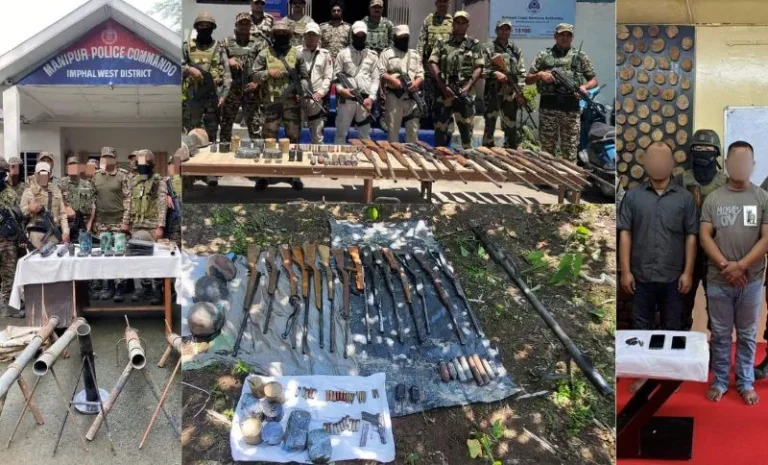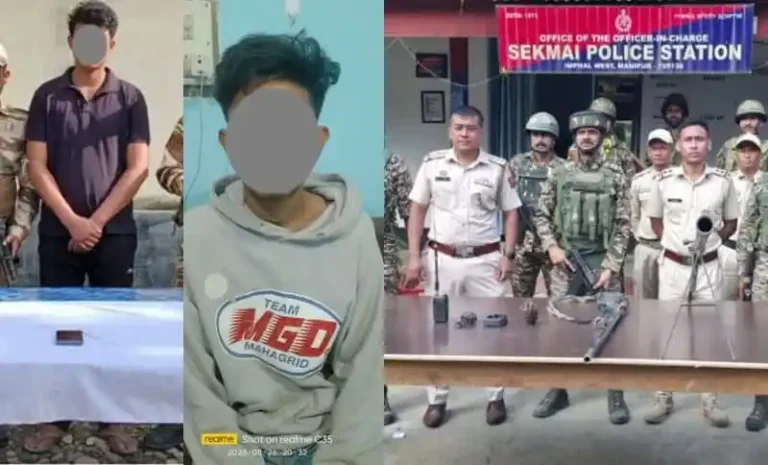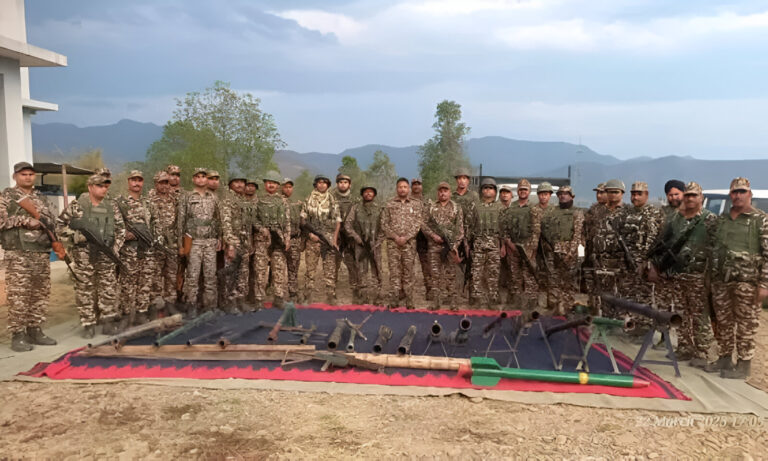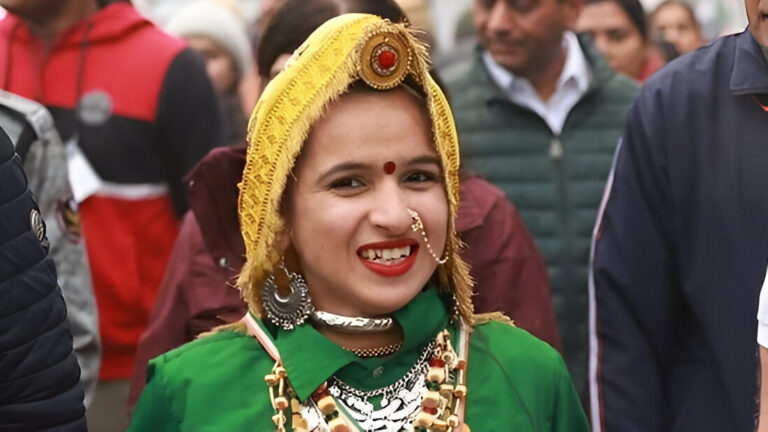Rahul Gandhi Slams BJP Over President’s Rule in Manipur: Questions PM Modi’s Silence
Summary of the News Article
In a fiery statement that has stirred political debates across the nation, Rahul Gandhi has sharply criticized the BJP over the imposition of President’s Rule in Manipur, questioning Prime Minister Modi’s conspicuous silence on the issue. This bold critique not only highlights the mounting political tensions but also underscores the urgent need for transparent dialogue about the state’s governance crisis.
When political drama unfolds on the national stage, it often sends ripples far beyond the corridors of power. Recently, Rahul Gandhi did just that—he leveled a scathing critique at the BJP over the imposition of President’s Rule in Manipur and raised pointed questions about Prime Minister Modi’s silence on the matter. If you’re curious about the nuances behind these comments and what they might signal for the future of Indian politics, you’re in the right place. Let’s break it down, step by step.
The Backdrop: What Sparked the Outcry?
A Crisis in Manipur
Manipur, a state known for its vibrant culture and resilient spirit, has been grappling with political instability for a while now. The recent decision to impose President’s Rule—where the central government takes over the administration due to the breakdown of local governance—has not only thrown the state into uncertainty but also ignited a fierce debate across India.
Imagine a once-thriving community suddenly losing its local leadership; that’s essentially what happens when President’s Rule is imposed. Local governance gets replaced by a centralized, often detached, administration. This move, while sometimes necessary to restore order, can also leave residents feeling disenfranchised and voiceless.
Rahul Gandhi’s Fiery Rejoinder
Rahul Gandhi, known for his outspoken nature, seized the moment to question the BJP’s handling of the situation. He didn’t hold back, pointing fingers at the party for what he perceives as an unnecessary and heavy-handed intervention. More critically, he challenged PM Modi’s silence, suggesting that strong leadership should come with accountability and clear communication—qualities that, according to Gandhi, are sorely missing in this instance.
Delving Deeper: What Is President’s Rule and Why Is It Controversial?
Understanding President’s Rule
At its core, President’s Rule is a constitutional provision under Article 356 that allows the central government to take over the administration of a state when local governance collapses. This isn’t just a bureaucratic formality—it’s a tool designed to stabilize situations where political gridlock, law and order issues, or administrative failures threaten the fabric of state governance.
Think of it like a fire extinguisher. When a small fire (or crisis) breaks out, the local team might handle it. But when the flames grow out of control, sometimes you need a specialized unit to step in. In this scenario, the central government plays that role. However, as with any powerful tool, its misuse or overuse can lead to debates about democratic accountability and the erosion of local autonomy.
The Double-Edged Sword of Central Intervention
While President’s Rule is sometimes necessary, it often comes with significant drawbacks:
- Loss of Local Voice: When power is centralized, the unique needs and voices of local communities can get sidelined.
- Temporary Fixes: It’s more of a stopgap than a permanent solution, potentially delaying necessary reforms.
- Political Backlash: The move can be seen as a politically motivated maneuver, especially when it appears to serve the interests of the central party rather than the people of the state.
In Manipur’s case, the imposition of President’s Rule has not only disrupted local governance but also sparked a fierce political debate—a debate in which Rahul Gandhi has positioned himself as a vocal critic.
Rahul Gandhi’s Criticism: A Call for Accountability
The Heart of His Critique
Rahul Gandhi’s comments resonate with many who feel that the imposition of President’s Rule in Manipur was more about political maneuvering than about genuine governance issues. In his statement, he argues that the BJP’s decision was an overreaction that ignored the real issues at hand. His criticism is layered:
- Questioning the Necessity: Why was such a drastic step necessary when alternative measures might have sufficed?
- Highlighting the Silence: Why is PM Modi, a leader known for his assertiveness, so silent on a matter affecting a whole state?
- Demanding Transparency: What is the real plan for Manipur, and how will local voices be heard in the future?
Rhetoric That Strikes a Chord
Gandhi’s rhetoric is not just political posturing—it’s a call for accountability. He paints a picture of a government that is disconnected from the grassroots, urging citizens to demand clarity and better governance. His tone is conversational and direct, almost as if he’s having a heart-to-heart with the common man about the state of affairs in Manipur.
Imagine sitting down with an old friend who is visibly upset about how things are being run in their community, and then passionately explaining why you believe more needs to be done. That’s the kind of relatable, heartfelt message Gandhi is trying to send.
The Broader Political Implications
What Does This Mean for the BJP?
Every political decision has ripple effects, and this one is no different. The BJP now finds itself under intense scrutiny:
- Questioning Leadership: Critics argue that the silence of PM Modi on this matter speaks volumes about the party’s leadership style.
- Public Trust: The people of Manipur and other affected regions might begin to question whether the central government truly understands and cares about their local issues.
- Political Capital: In a democracy, trust and transparency are key. This episode could erode the BJP’s political capital, not just in Manipur but across the country.
A National Conversation on Governance
Rahul Gandhi’s remarks have ignited a broader debate about the nature of governance in India. His challenge isn’t limited to the BJP or Manipur—it’s a question for all of us: How do we ensure that our leaders remain accountable, and how do we safeguard the voice of the people in our political processes?
In a country as diverse and expansive as India, balancing central authority with local autonomy is an ongoing challenge. The debate that ensues from this incident might very well pave the way for much-needed reforms in how state crises are managed in the future.
Historical Context: Lessons from the Past
A Recurring Theme in Indian Politics
India has a history of imposing President’s Rule in states facing severe political and administrative issues. Each instance provides valuable lessons:
- Short-Term vs. Long-Term Solutions: Often, President’s Rule has been a temporary measure that failed to address the root causes of local unrest.
- Centralization of Power: Critics argue that repeated use of President’s Rule can lead to an unhealthy centralization of power, undermining the very essence of federalism.
- Public Sentiment: History shows that while such measures may stabilize the situation in the short term, they often leave lasting scars on the relationship between the state and the central government.
Manipur in the Larger Narrative
Manipur’s political journey is unique, with its own set of challenges ranging from ethnic tensions to demands for greater regional autonomy. The current crisis is a culmination of years of simmering issues that have finally reached a boiling point. By invoking President’s Rule, the central government might have temporarily halted the chaos, but the underlying issues remain unresolved.
Impact on Manipur: Beyond the Political Jargon
The Local Perspective
For the people of Manipur, the imposition of President’s Rule is not just a headline—it’s a lived experience. Daily life in Manipur has been disrupted in several ways:
- Administrative Disruptions: Routine governance, such as the delivery of public services and the implementation of local policies, faces delays and inefficiencies.
- Economic Concerns: Political instability can have a chilling effect on local businesses, investors, and even tourism—a crucial part of Manipur’s economy.
- Social Unrest: When the government seems distant or unresponsive, public trust erodes, leading to increased protests and community friction.
Stories from the Ground
Imagine a small business owner in Imphal who has been struggling to keep his shop running amidst frequent power outages and administrative delays. Or think of a student who once looked up to local leaders for inspiration but now finds themselves questioning the future of their state. These are the real-life impacts that extend far beyond political rhetoric.
Media Coverage and Public Discourse
The Role of Media in Shaping Opinions
The media plays a crucial role in such situations by not only reporting the facts but also framing the debate. Coverage of Rahul Gandhi’s comments and the ensuing political fallout has been extensive, with opinions ranging from staunch support to sharp criticism.
News outlets have dissected every word, every pause, and every nuance of Gandhi’s remarks, turning what might have been a fleeting comment into a nationwide conversation. Social media, too, is abuzz with debates, memes, and heated discussions about whether the central government is truly acting in the best interests of Manipur.
The Power of Social Media
In today’s digital age, a single tweet or soundbite can galvanize millions. Gandhi’s pointed questions about PM Modi’s silence have quickly spread across social media platforms, resonating with those who feel similarly disillusioned by the current state of governance. It’s a reminder that in modern politics, public sentiment is not just measured by polls, but also by the fervor of online discussions.
Analyzing the Silence: Why Is PM Modi Quiet?
Leadership Styles and Political Strategy
One of the most intriguing aspects of this saga is the silence from the top. Prime Minister Modi, known for his assertive leadership and robust communication, has remained notably silent on the issue. This raises several questions:
- Is it a strategic silence meant to avoid fueling further controversy?
- Could it be a sign of internal deliberations that are yet to bear fruit?
- Or is it simply a case of the leadership distancing itself from a politically volatile situation?
In any political drama, silence can be as powerful as words. When a leader known for his decisiveness opts for silence, it can be interpreted in many ways—either as wisdom in avoiding rash statements or as a lack of accountability in a time when the public expects clear communication.
The Impact of Political Silence
Silence from a leader during turbulent times often leaves room for speculation. In the case of PM Modi, his quiet stance might be seen as an attempt to steer clear of further politicization of a sensitive issue. However, this very silence is what Rahul Gandhi has seized upon to question the BJP’s priorities and transparency.
What Lies Ahead: The Future of Manipur’s Governance
Short-Term Measures vs. Long-Term Solutions
The current imposition of President’s Rule is undoubtedly a short-term measure aimed at stabilizing the situation. But as we all know, quick fixes rarely solve deep-rooted issues. The pressing questions now are:
- How long will President’s Rule last in Manipur?
- What concrete steps will be taken to address the underlying causes of the state’s instability?
- And importantly, how will the voices of the local people be re-integrated into the governance process once the crisis subsides?
The answers to these questions will determine not only the political future of Manipur but also the credibility of the central government’s approach to managing state-level crises.
A Call for Inclusive Governance
Many political analysts argue that the solution lies in fostering a more inclusive model of governance—one that respects local voices while ensuring national stability. This could involve:
- Enhanced Dialogue: Establishing platforms for direct communication between the central government and local leaders.
- Decentralization: Empowering local bodies with greater autonomy to manage day-to-day issues.
- Systemic Reforms: Overhauling administrative mechanisms to prevent the recurrence of similar crises in the future.
Such measures, if implemented thoughtfully, could transform this crisis into an opportunity for long-overdue reforms in the Indian federal structure.
A Balancing Act: Democracy and Governance
The Tightrope of Central vs. Local Authority
The imposition of President’s Rule in Manipur is a classic example of the challenges inherent in a federal system. On one hand, a strong central intervention can help restore order during emergencies. On the other, it risks undermining the very democratic principles that allow diverse regional voices to flourish.
This delicate balance—between maintaining national unity and respecting local diversity—is the cornerstone of India’s political system. The current situation in Manipur is a stark reminder that while central intervention might be necessary at times, it should never come at the cost of sidelining the aspirations and rights of the local populace.
The Role of Public Accountability
At its heart, democracy is about accountability. Leaders are expected to be responsive to the needs of their constituents, and any perceived silence or inaction can quickly erode public trust. Rahul Gandhi’s vocal criticism is, therefore, not just a political strategy—it’s a call to ensure that those in power remain answerable to the people.
The Road to Recovery: Restoring Trust and Stability
Engaging the Community
For Manipur to emerge stronger from this phase of President’s Rule, a concerted effort must be made to rebuild trust. This involves:
- Community Outreach: Initiatives that actively involve local communities in the decision-making process.
- Transparency: Open channels of communication where the central government explains its actions and lays out a clear roadmap for the future.
- Empowerment: Strengthening local institutions and ensuring that local leaders have a real say in governance.
Economic and Social Revival
Political stability is often the precursor to economic and social revival. In Manipur, the current crisis has had a tangible impact on daily life. Moving forward, restoring stability will require targeted interventions such as:
- Boosting Local Business: Policies that encourage entrepreneurship and attract investment to the region.
- Improving Infrastructure: Ensuring that basic amenities like healthcare, education, and transportation are not disrupted by political turmoil.
- Cultural Preservation: Protecting and promoting Manipur’s rich cultural heritage, which is a key part of its identity and a potential driver of tourism.
Bridging the Political Divide: Can Dialogue Replace Discord?
The Need for Constructive Debate
In the aftermath of such a polarizing issue, the path forward must involve constructive dialogue rather than deepening divides. Both the central leadership and local stakeholders need to engage in meaningful conversations to chart a way out of the crisis.
Could this moment of contention be transformed into an opportunity for genuine reform? Many believe it can, provided all parties are willing to put aside partisan differences and focus on the welfare of the people. By encouraging open debates and listening to grassroots feedback, the political class can potentially build a more resilient and responsive governance framework.
Learning from the Past, Building for the Future
Every crisis carries within it the seeds of change. While the imposition of President’s Rule in Manipur has sparked intense criticism and heated debates, it also presents a unique opportunity to re-examine the mechanisms of state governance in India. By learning from past mistakes and embracing a model of inclusive and accountable leadership, there is hope that the region can emerge stronger, setting an example for other states facing similar challenges.
Conclusion: A Pivotal Moment in Indian Politics
Rahul Gandhi’s stern critique of the BJP and his pointed questions about PM Modi’s silence on the imposition of President’s Rule in Manipur have not only captured headlines but also ignited a broader debate about the nature of governance in India. At a time when the balance between central authority and local autonomy is more delicate than ever, his words serve as both a cautionary tale and a call to action.
As citizens, policymakers, and political leaders navigate these turbulent waters, the hope is that this crisis will catalyze much-needed reforms, restore trust in democratic institutions, and ultimately pave the way for a governance model that truly reflects the aspirations of all Indians.
The road ahead may be challenging, but it is also filled with opportunities—opportunities to engage in open dialogue, to reform outdated systems, and to build a future where every voice is heard, no matter how small. In this pivotal moment, the message is clear: accountability, transparency, and inclusive governance are not just lofty ideals, but essential ingredients for a thriving democracy.
FAQs
- What is President’s Rule and why was it imposed in Manipur?
President’s Rule is a constitutional provision that allows the central government to take control of a state’s administration when local governance fails. In Manipur, it was imposed due to political instability, administrative inefficiencies, and rising law and order issues. - Why did Rahul Gandhi criticize the BJP regarding President’s Rule in Manipur?
Rahul Gandhi questioned the necessity of imposing President’s Rule, challenged the BJP’s handling of the crisis, and specifically criticized PM Modi’s silence, suggesting that more transparency and accountability were needed. - What are the potential drawbacks of imposing President’s Rule?
While President’s Rule can stabilize a crisis, it can also lead to a loss of local autonomy, a temporary fix that ignores deeper issues, and a disconnect between the central government and local communities. - How might the current political situation in Manipur affect the state’s future?
The crisis could have lasting impacts on local governance, economic stability, and public trust. It also raises important questions about central intervention versus local self-governance that may shape future reforms. - What steps can be taken to ensure a smoother transition from President’s Rule to democratic governance in Manipur?
Effective measures include enhanced dialogue between central and local authorities, institutional reforms to empower local leaders, transparent communication, and targeted economic and social revival programs.




